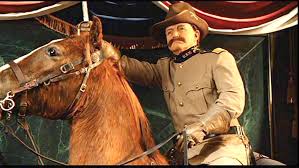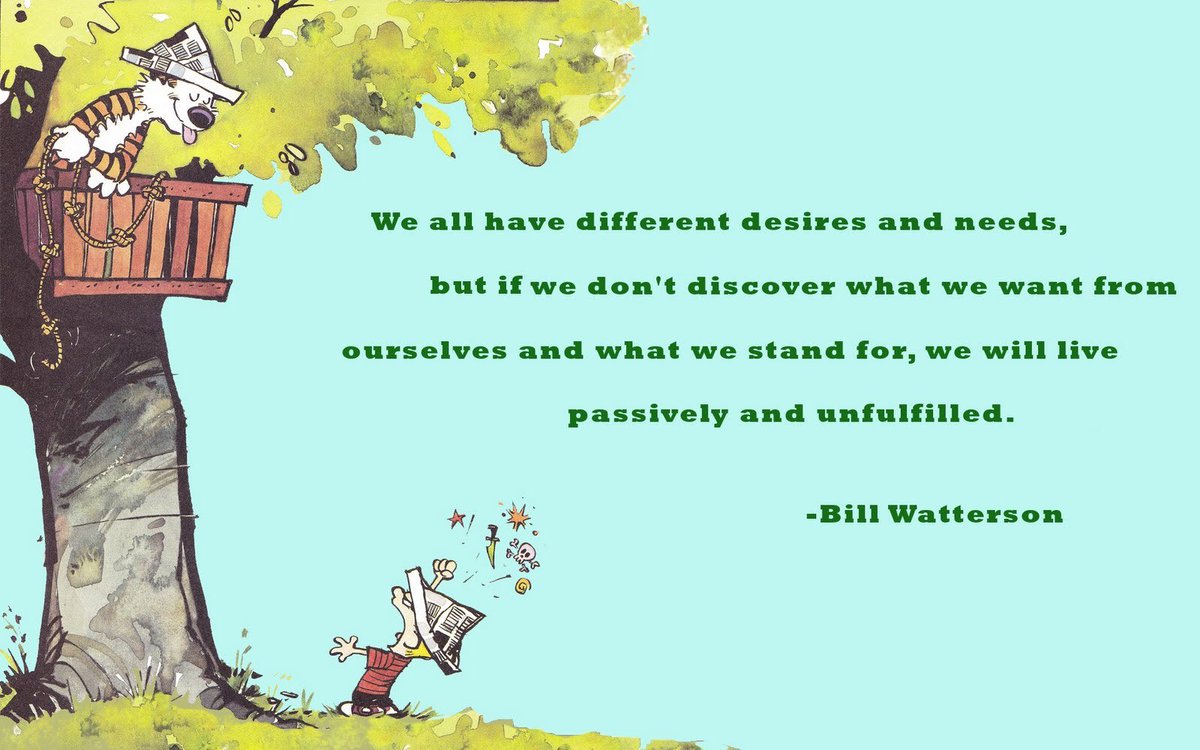LISTEN. Meeting the MALA class to talk about educating good citizens tonight. Is civic virtue a source of happiness, a by-product of it, or both? If by happiness we mean something like Greek arete, virtue, and eudaimonia, it must be both. The good life belongs to individuals whose personal flourishing is inseparable from the health and vitality of the polis and the various communities that compose it. And if we agree with John Dewey that good lives and good societies undergo perpetual reconstruction, never ceasing to learn and grow in response to their environing conditions, it must be both. Looking forward to a good conversation with the good citizens of our MALA community this evening. 9.2.21
==
LISTEN. Today in Happiness we'll ponder the sources of happiness, or as I like to say (following William James) the springs of delight. And then we'll wonder what's beyond happiness: well-being, flourishing, eudaimonia. [First we'll catch up on "Measured Satisfaction" etc.]Is delight the same as happiness? The floor is open, on that, but I've never been unhappily delighted. When I am delighted, I am well. It's close enough for me. I think it was close enough for James too, whose main point about the "falling dead of the delight" to which we're perpetually liable is that it is recoverable, and that the pursuit of happiness need never be finally abandoned. Delight can be recovered, repeatedly; a lease can be renewed, time and again; the vitality and delight of life at its highest pitch can be returned.
In our bleakest darkness we may and must anticipate the break of a new day... because, the alternative is hopeless resignation. To be delightedly happy is to remain vigilantly attuned to our own peculiar springs of delight. They're peculiarly ours. It's a myth to think that every happy person is happy in the same way, having decoded the same "secret"... and maybe that goes for families too. Sorry, Tolstoy.
[It was on this day (Sep2) in 1901 that Theodore Roosevelt uttered his famous words “Speak softly and carry a big stick.” He was vice president at the time and was giving a speech at the Minnesota State Fair... On another occasion, he said, “If a man continually blusters, if he lacks civility, a big stick will not save him from trouble, and neither will speaking softly avail, if back of the softness there does not lie strength, power.” WA]
Teddy Roosevelt's favorite exclamation, after Bully!, was De-lighted! That capacity and receptivity wasn't a natural spring for him, it didn't spontaneously flow. He cultivated it, dug it out, tended it... first in overcoming a sickly childhood, then in rebounding from the devastating loss of both wife and mother on the same day in his young adulthood. It's arguable that his robust appetite for the "strenuous" life was an over-the-top overcompensation, his "big stick" diplomacy an imperious excuse for American overreach.
But from TR's own point of view, again, he must have seen no alternative. As the positive psychologists say, he worked hard at eek-ing out as much positivity as his personal set-point allowed. Might he have done otherwise? That's a real and open question, philosophically. But personally and existentially he must have felt the strenuous life as his only salvation. Where, I wonder, does that place him on the spectrum of stoics and epicureans?
And what about this guy?

Some of us may be genetically predisposed to experience more delight, but "plenty of things can affect how happy we are" whatever our personal "set point." That can be an excuse for not trying, when the evidence is clear that "human beings are remarkably adaptable and resilient" and thus almost always capable of being happier.
But beware, "people who place a higher value on money, possessions, and status tend to be less happy." Such extrinsic motivators are inferior, while the enlightened rich whose motivation is intrinsic and interior are often less materialistic than the poor. Go figure.
What else matters, besides intrinsic motivation? An outlook that's positive, accepting, and caring. And besides outlook? Security, autonomy, relationships, something to do that's skilled and meaningful.
But circle back to money, which is too frequently given short shrift in these discussions. It can't buy you love, but if you're pulling less than 75K you're going to notice the happiness-income link.
Aristotelians say its in our nature to pursue happiness and fulfillment as activities in accordance with virtue. So, if you could plug into an Experience Machine that made you feel happy, would you be happy? Wouldn't you like to find out?
"Desire theories assert that what's good for you is getting what you want." You can't always get what you want. What do you need? "People often want things that aren't good for them," so perhaps we should challenge James's contention that "the only possible reason there can be why any phenomenon ought to exist is that such a phenomenon actually is desired. Any desire is imperative to the extent of its amount; it makes itself valid by the fact that it exists at all..." MPML
As for the strivers and enjoyers, I find myself allied with the great E.B. White: “I arise in the morning torn between a desire to improve (or save) the world and a desire to enjoy (or savor) the world. This makes it hard to plan the day.” So, different days for different desires?
Lots more provocative questions for discussion today. My favorites: Is happiness really a choice? Is accepting things as they are really responsible? How would YOU use the Experience Machine?
I'm happy to pass along this Happiness wisdom from cousin Mary, the poet:
And as for Desire Theory, it's hard to dispute Calvin & Hobbes:

Teddy Roosevelt's favorite exclamation, after Bully!, was De-lighted! That capacity and receptivity wasn't a natural spring for him, it didn't spontaneously flow. He cultivated it, dug it out, tended it... first in overcoming a sickly childhood, then in rebounding from the devastating loss of both wife and mother on the same day in his young adulthood. It's arguable that his robust appetite for the "strenuous" life was an over-the-top overcompensation, his "big stick" diplomacy an imperious excuse for American overreach.
But from TR's own point of view, again, he must have seen no alternative. As the positive psychologists say, he worked hard at eek-ing out as much positivity as his personal set-point allowed. Might he have done otherwise? That's a real and open question, philosophically. But personally and existentially he must have felt the strenuous life as his only salvation. Where, I wonder, does that place him on the spectrum of stoics and epicureans?
And what about this guy?
Some of us may be genetically predisposed to experience more delight, but "plenty of things can affect how happy we are" whatever our personal "set point." That can be an excuse for not trying, when the evidence is clear that "human beings are remarkably adaptable and resilient" and thus almost always capable of being happier.
But beware, "people who place a higher value on money, possessions, and status tend to be less happy." Such extrinsic motivators are inferior, while the enlightened rich whose motivation is intrinsic and interior are often less materialistic than the poor. Go figure.
What else matters, besides intrinsic motivation? An outlook that's positive, accepting, and caring. And besides outlook? Security, autonomy, relationships, something to do that's skilled and meaningful.
But circle back to money, which is too frequently given short shrift in these discussions. It can't buy you love, but if you're pulling less than 75K you're going to notice the happiness-income link.
Aristotelians say its in our nature to pursue happiness and fulfillment as activities in accordance with virtue. So, if you could plug into an Experience Machine that made you feel happy, would you be happy? Wouldn't you like to find out?
"Desire theories assert that what's good for you is getting what you want." You can't always get what you want. What do you need? "People often want things that aren't good for them," so perhaps we should challenge James's contention that "the only possible reason there can be why any phenomenon ought to exist is that such a phenomenon actually is desired. Any desire is imperative to the extent of its amount; it makes itself valid by the fact that it exists at all..." MPML
As for the strivers and enjoyers, I find myself allied with the great E.B. White: “I arise in the morning torn between a desire to improve (or save) the world and a desire to enjoy (or savor) the world. This makes it hard to plan the day.” So, different days for different desires?
Lots more provocative questions for discussion today. My favorites: Is happiness really a choice? Is accepting things as they are really responsible? How would YOU use the Experience Machine?
I'm happy to pass along this Happiness wisdom from cousin Mary, the poet:
Oliver said: “I’ve always wanted to write poems and nothing else. There were times over the years when life was not easy, but if you’re working a few hours a day and you’ve got a good book to read, and you can go outside to the beach and dig for clams, you’re okay.” http://writersalmanac.org/(If you're landlocked, you're going to have to substitute for the clams.)
And as for Desire Theory, it's hard to dispute Calvin & Hobbes:

9.10.19
No comments:
Post a Comment